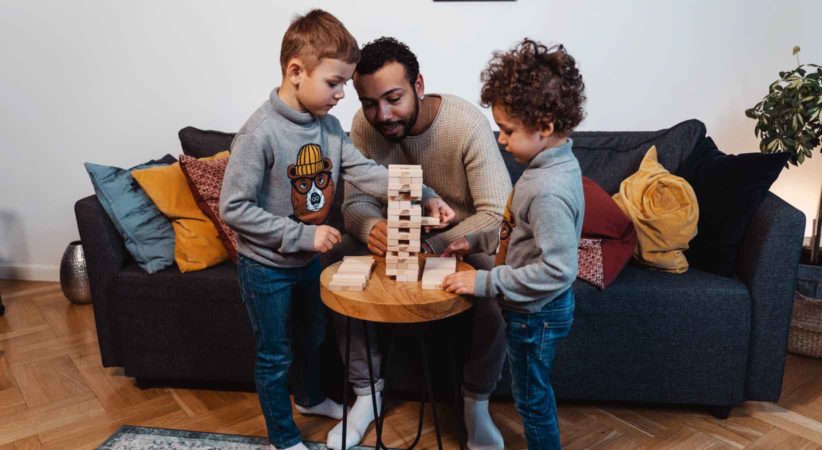
Let’s Connect with Guided Play!
It’s Family Literacy Week and this year’s theme is Let’s Connect! Care * Play * Listen. Today we ask the question, “Can play be a method for learning?” Recent research shows that using guided play (as opposed to free play) can be a powerful learning tool. We all know that play improves children’s overall health and wellbeing. It helps them to learn social roles, cooperation and self-regulation. While free or unstructured play can provide children with many benefits, guided play is proving to be a compelling learning mechanism.
“Guided play broadly refers to playful educational activities which, although gently steered by an adult, give children the freedom to explore a learning goal in their own way.” – Faculty of Education, University of Cambridge
Current research has found that guided play can be just as effective as teacher-led methods in developing:
- literacy
- numeracy
- social skills
- executive functions
Families who play together connect with each other. How can families introduce guided play and reap its rewards? The article 7 Tips for Child-Guided Play by Savannah Copland offers some great ideas for getting started.
- Recognize teachable moments. When your child is engaged in play, find ways to turn it into a learning opportunity. For example, if the child is colouring or painting, ask about what primary colours mix together to create new colours (blue + red = purple).
- Ask questions. When you ask your child questions, you are encouraging them to think. Ask them cause and effect questions (“why” questions) or hypothesis testing questions (“what if” questions).
- Compare and contrast. Point out similarities and differences between objects or ideas to your child.
- Teach discovery. Instead of telling your child new information when they are playing, set them up to make that discovery. Demonstrate how you made that discovery and they will be more engaged and will actively explore.
- Encourage their interests. Teach the child how to get more information about topics they are interested in. They can go to the library, visit museums, search the internet, ask professionals in the field, etc. Show them enthusiasm for their personal interests.
- Celebrate achievements. Positive reinforcement encourages children to keep exploring and discovering.
- Answer questions. Although a deluge of questions can be irritating, it’s also an opportunity to encourage learning during play. Connect new information with things the child already knows.
Check out this video for Family Literacy Week demonstrating guided play with a local StoryWalk®.
Be sure to view the entire playlist of Family Literacy Week 2022 videos!
Have a look at the resources below for more information and ideas for guided play.
Resources
- Guided Play: Maximizing Kids’ Learning AND Fun
- How Parents Can Promote Learning Through Guided Play
- Learning through ‘guided’ play can be as effective as adult-led instruction
- Play with a purpose: How do we do guided play with children?
- Serious Fun : How Guided Play Extends Children’s Learning
- Why Guided Play is the Secret to Playtime with your Kids
Related Blog Posts
Let’s Read Together! – Family Literacy Week 2020
Join us in celebrating Family Literacy Week 2020! It’s taking place from January 26th to February 2nd. The theme is Let’s Read Together! with a focus on families reading together …
Keeping Kids Active While Staying Indoors
It’s important to keep children’s bodies and minds active while families are staying home. The Canadian 24-Hour Movement Guidelines for Children and Youth (ages 5-17 years) recommend a balance …
Nonfiction Books to Read Together
Kids definitely can learn from talking pigs, but they can learn from pigs (and dinosaurs) that don’t talk. In fact, many of them prefer it that way. – Tim Shanahan …
